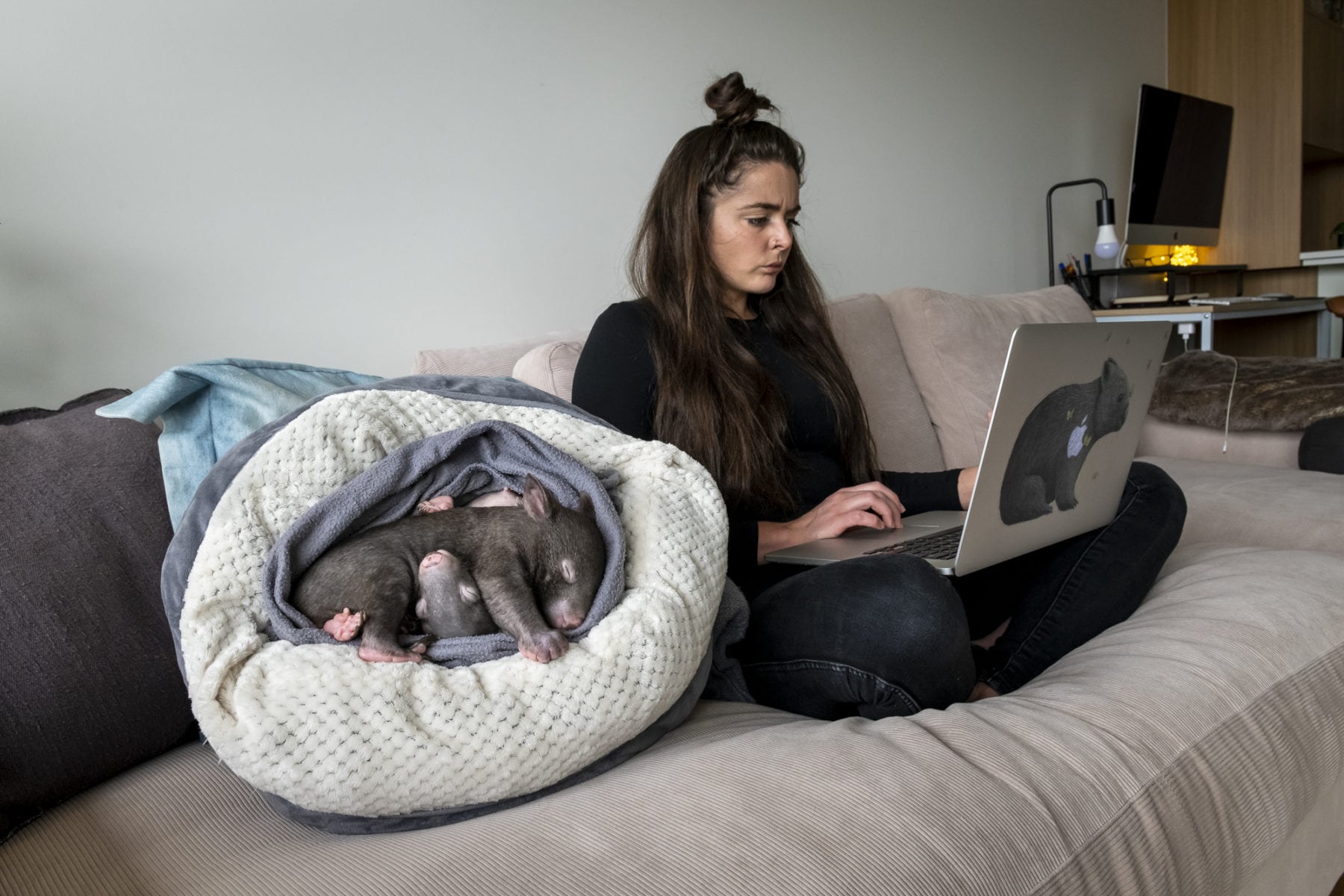FIRSTLY, THEY survived the bushfire that took out much of their forest home in Victoria’s Gippsland last December during the catastrophic Black Summer fires. Then, their mums were killed by cars.
They each lay helpless in their dead mother’s pouch overnight, on the side of a country road, until they were found severely stressed and dehydrated by passers-by.
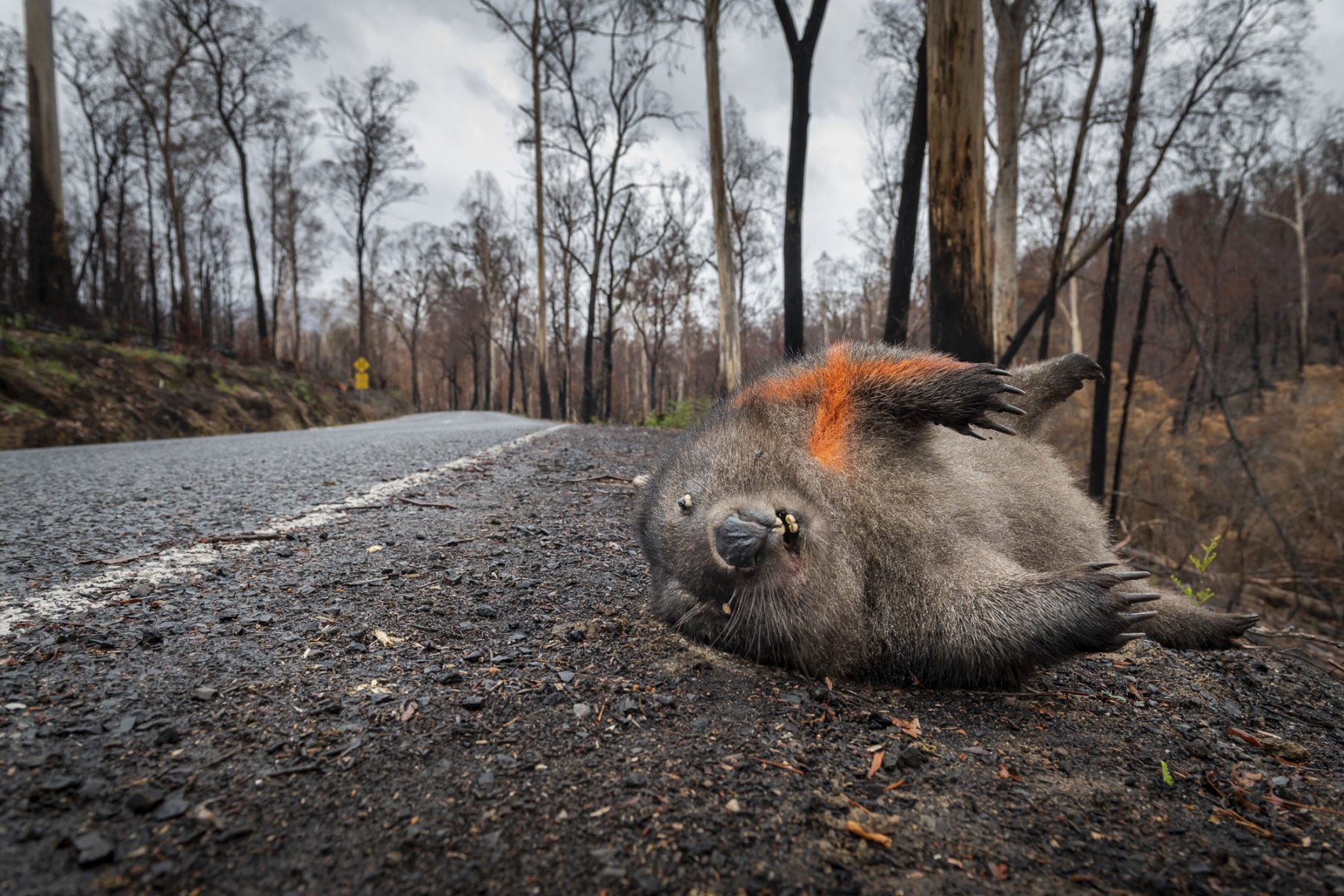
“These little guys are the perfect example of why you need to check the pouches of marsupials killed on the road,” says Emily Small who, with her mother, Sharon Small, runs Goongerah Wombat Orphanage, in Gippsland.
Beatrice, Bronson and Landon were taken to be nursed and raised to adulthood at Goongerah and to give them the best care Emily was travelling between there and Melbourne, where she works fulltime for Wildlife Victoria.
Then COVID-19 struck. And since lockdown restrictions came into force for a second time four weeks ago, Beatrice, Bronson and Landon have been holed up with Emily in her one-bedroom apartment on the top-floor of a 7-storey apartment block in the Melbourne suburb of Preston.
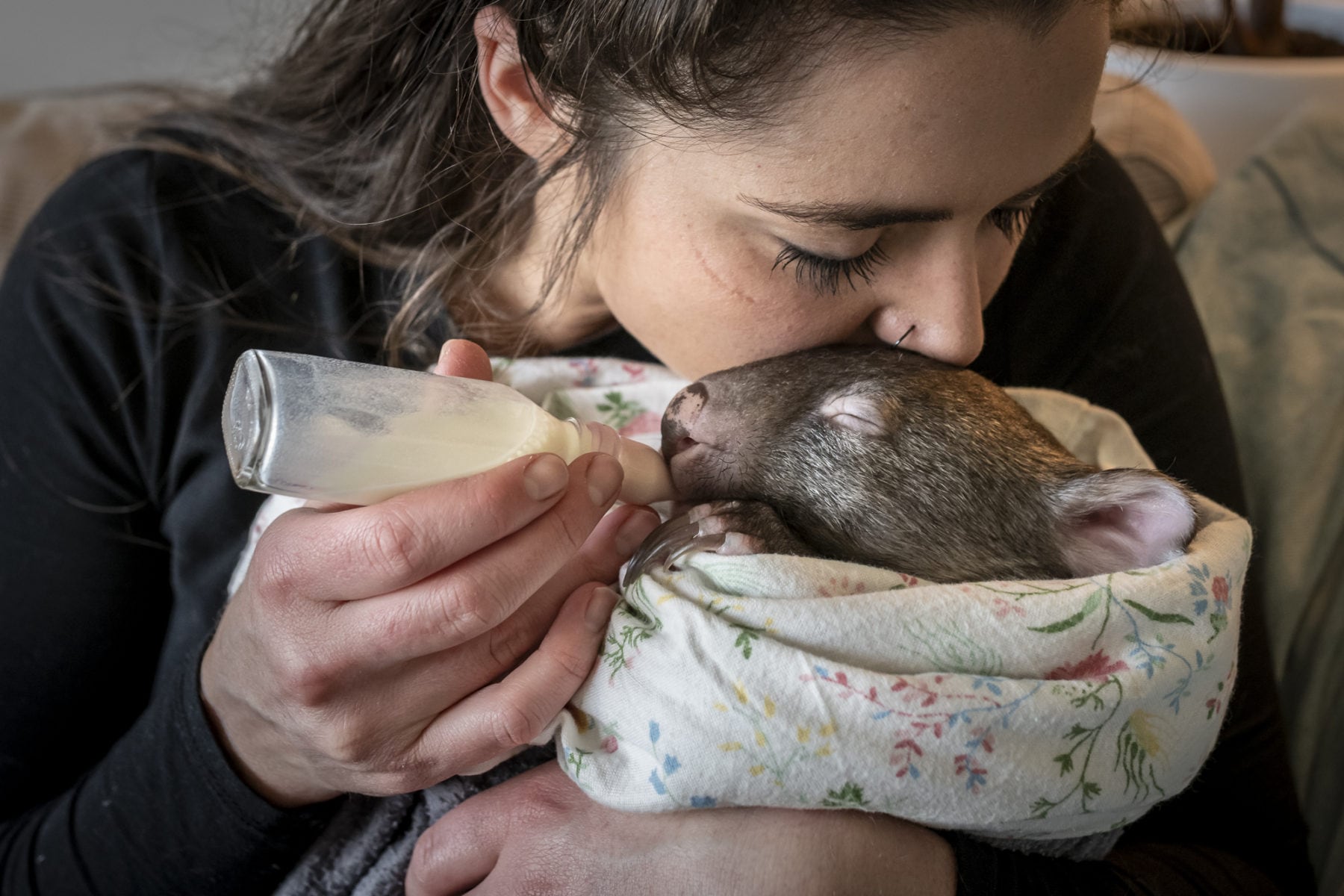
Now aged between nine and seven months, the joeys need as much attention as human babies of the same age. And that means close personal contact with a ‘mother’ figure, which means Emily, until they are old enough to released.
But the three little joeys are also bonded to each other. Emily, now 28, has been caring for wombats since she was nine and learned long ago that there’s a risk wombat orphans can become too connected to their human carers.
It’s for that reason that the three youngsters are being raised together. Having each other means they don’t fret when Emily is not close by – like when she needs to leave her tiny apartment, travel down the lift and venture out into the world for more wombat supplies.
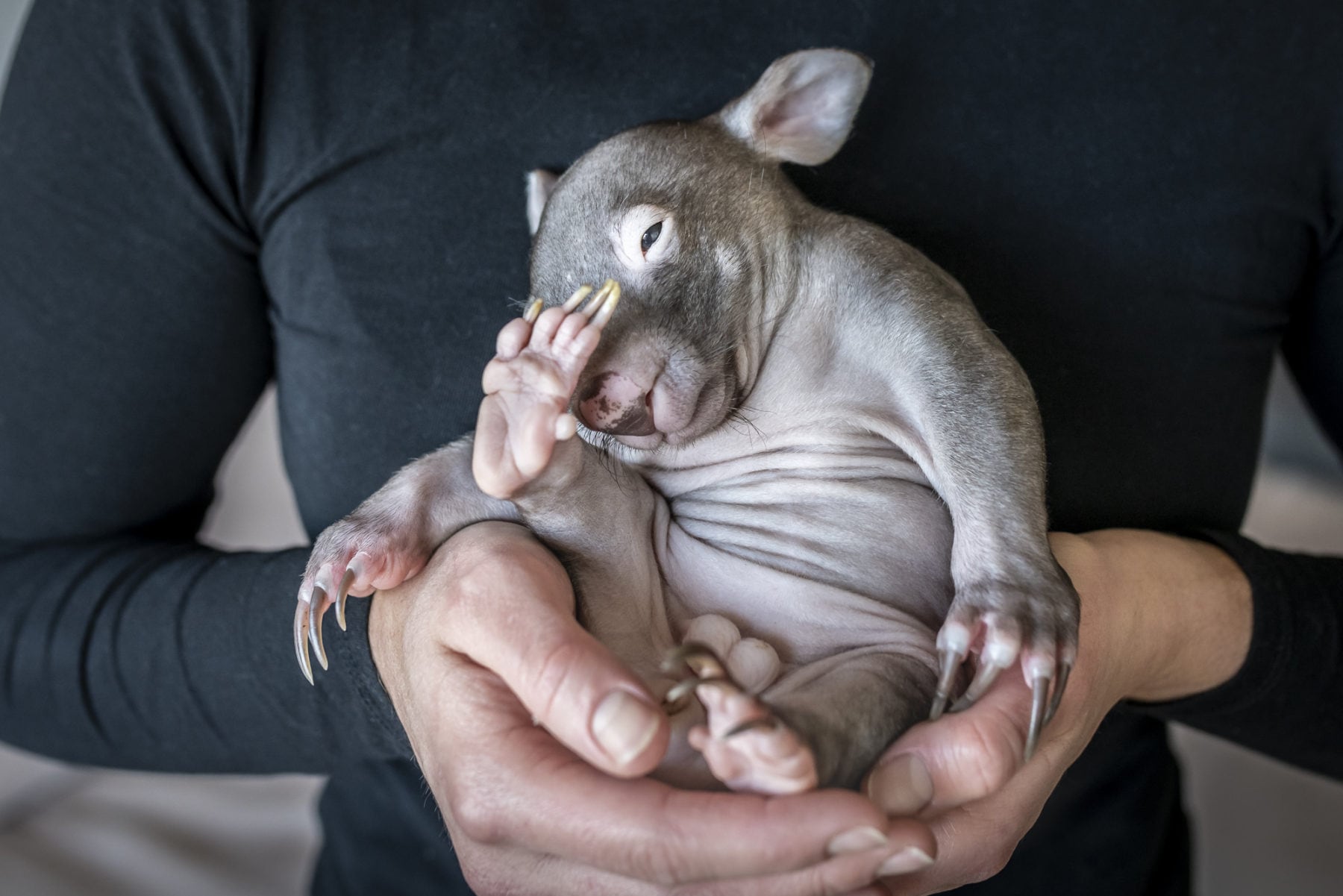
The close bond between the three joeys will also mean that their eventual release back into the wild should go smoothly, without any separation anxiety complications that might arise if they become too connected to Emily.
“People think wombats are dumb, because they don’t get out of the way of cars when they approach,” Emily says. “But they’ve got really poor eyesight and can only see a metre or two in front of them. So, they stop when they hear a car and don’t get out of the way, because they can’t see it and then they’re hit.
“But they’re the smartest marsupials – they’re super intelligent! I can’t tell you how many signs of that that I’ve seen over the years.”

They’re also really inquisitive and affectionate, although Emily is mindful of keeping any ‘cuddling’ time to the minimum that’s needed to reassure them that they’re safe and secure, as a mother wombat might do. She moves them between different enclosures within her tiny flat to keep them mentally stimulated and occasionally lets them out to roam free around the flat.
“But they’re really inquisitive and will try and eat anything, so it’s safest for them and my things if they’re restricted to some extent,” Emily says.
While the joeys are nourished using a special marsupial milk formula, Emily is also conscious of introducing them to the sort of grass and dirt on which they’ll forage as adults. But being in lockdown doesn’t mean that they’re missing out on that.
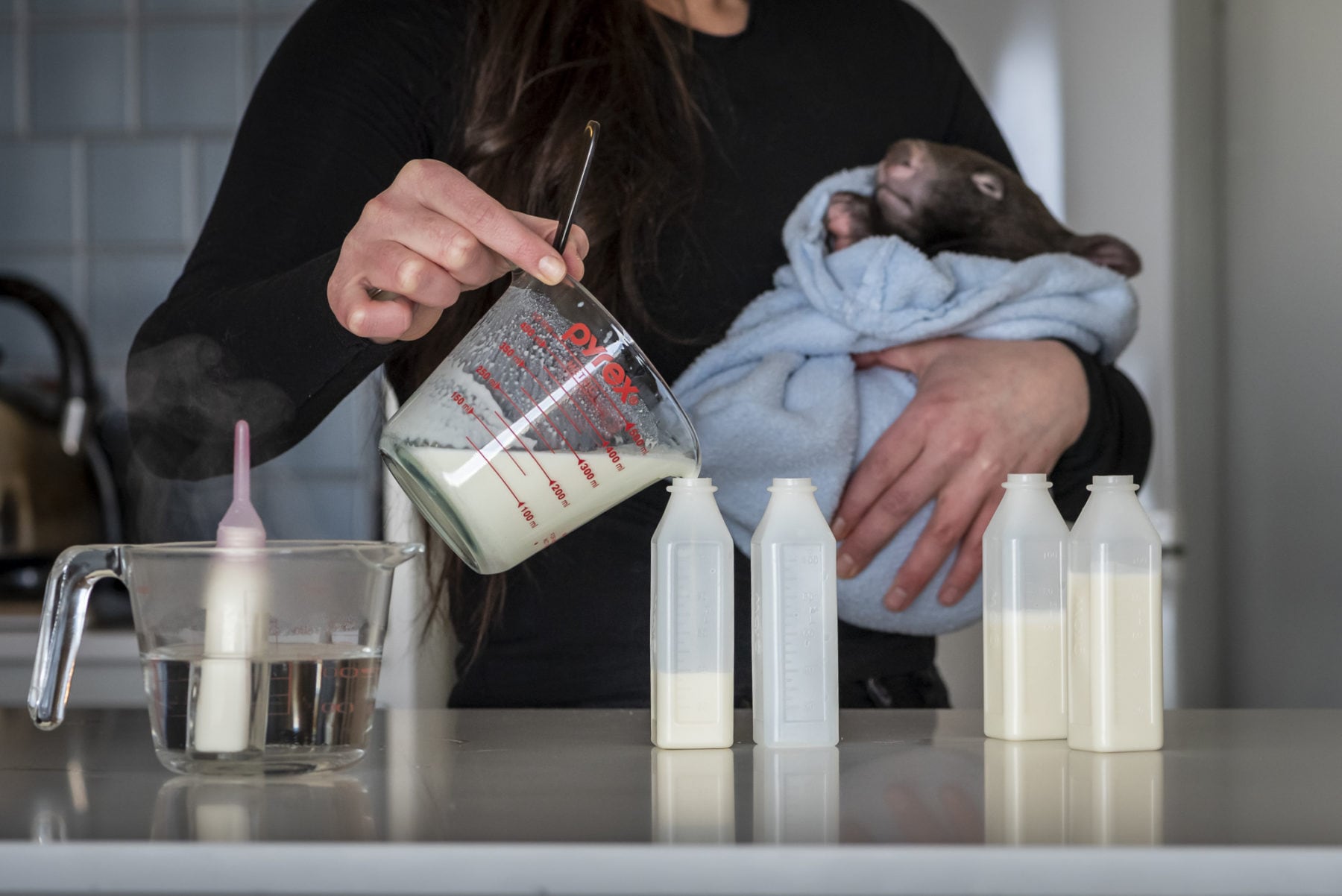
Emily needs to be in Melbourne for her work. But before the most recent toughest travel restrictions kicked in, she made a trip to Goongerah to dig up wedges of native grass grass growing in unpolluted soil – and she keeps that alive in her flat to give the joeys a taste for the sort of foraging they’ll be doing as adults.
While she still has some of that surviving, Emily has also been supplementing it with fresh material – pollution free native grasses that she’s been sourcing close to Melbourne for now.
They joeys will be ready for release back into the wild in about 10 months, and they’ll be returned as close as possible to where they were found.
It will be a bitter-sweet moment for Emily. “Yes, I’ll miss them when it’s time for them to go back to the wild,” she admits.
“But it will mean I’ve had three more success stories. And, to be honest, they’re like small children – they take 24-hour care and I’m constantly sleep-deprived at the moment.
“So, it will be nice to have some down time to rest for a while.”
Until, that is, the next orphan wombat joeys arrive.
